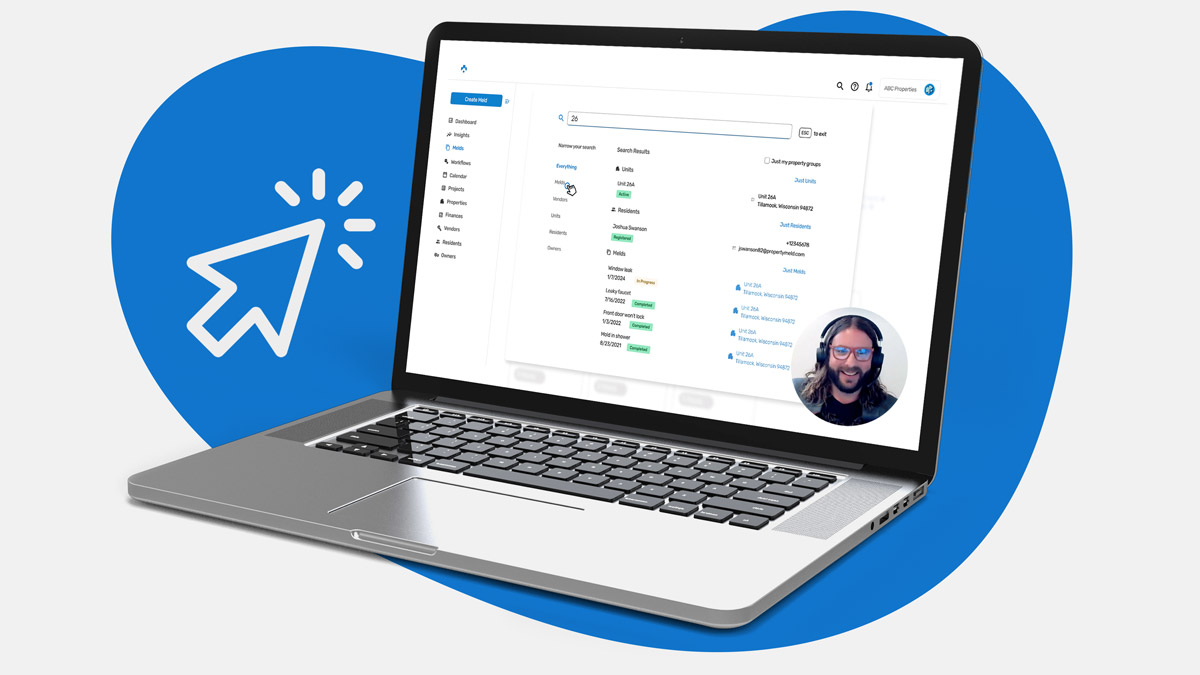Late-night calls aren’t the only time triage goes sideways. Over-dispatching happens at lunch hour too. With MAX™ On-Call, AI handles first-touch triage for every request, asks smart follow-ups, and separates true emergencies from routine issues so your team stops paying emergency rates for non-emergencies.
This scenario plays out thousands of times every week across the property management industry, creating a cascade of unnecessary costs and damaged relationships. When property managers lack the tools to properly assess after-hours maintenance requests, they face an impossible choice: risk under-responding to genuine emergencies or over-respond to everything and watch costs spiral out of control.
Most choose the latter, prioritizing caution over cost. The result? Emergency service invoices that are 2-3 times higher than necessary, exhausted vendors dispatched for non-emergencies, and a maintenance system that hemorrhages money while paradoxically leaving everyone involved dissatisfied.
But intelligent automation is rewriting this equation. AI-powered partners like MAX™ On-Call are proving that property management teams can deliver faster, more accurate after hours triage while dramatically reducing unnecessary emergency dispatches, and the costs that come with them.
Why Late-Night Maintenance is a Problem
The midnight phone call has become the defining symbol of property management burnout, but the problem runs much deeper than interrupted sleep.
The Cost of Caution: When a resident calls at 1:30 AM reporting “strange noises” in their walls, property managers face an assessment challenge with no good options. Is it rodents that can wait until morning? A plumbing issue that could cause damage? An electrical problem that poses safety risks?
Without proper tools to conduct systematic triage, most property managers default to the safest option: dispatch someone immediately. After all, the potential cost of property damage or safety risk far outweighs the cost of a single emergency call, or so it seems. But when this pattern repeats night after night, week after week, those “single” emergency calls accumulate into staggering unnecessary expenses that could have been avoided with better after hours triage.
Why Good Property Managers Over-Dispatch: The tragic irony is that conscientious property managers, those who care most about resident safety and property protection, often generate the highest unnecessary emergency costs. Their commitment to responsive service, combined with incomplete information and the pressure of late-night decision-making, leads them to err on the side of caution every time.
This pattern is compounded by liability concerns. In today’s litigious environment, the question “What if this turns into a bigger problem?” looms over every after-hours decision. Property managers know they’ll face more scrutiny for under-responding than over-responding, so they dispatch when in doubt, even when their instinct suggests the situation could wait.
The Economics of Poor Triage: The financial impact of inadequate after-hours assessment extends beyond just emergency dispatch fees. Consider the full cost cascade:
- Emergency service rates running 150-300% above standard pricing
- Vendor relationship degradation leading to higher baseline pricing
- Resident dissatisfaction when “emergencies” receive delayed response (because techs are busy on non-emergency calls)
- Insurance implications when genuine emergencies aren’t distinguished from routine issues
- Vendor scheduling inefficiencies that reduce availability when true emergencies occur
The Role of AI in Maintenance Triage
The emergence of sophisticated artificial intelligence offers a solution that seemed impossible just a few years ago: an AI-powered partner that can handle maintenance assessment with consistency and intelligence at any hour.
Redefining What’s Possible: MAX™ On-Call represents a fundamental rethinking of maintenance communication. Rather than expecting humans to be available 24/7, it deploys intelligent automation as the first point of contact for every maintenance request, whether it arrives at 2 PM on a Tuesday or 2 AM on a Sunday.
When a resident reaches out with a maintenance concern, MAX™ engages them immediately in natural conversation. But unlike a simple chatbot following rigid scripts, this AI-powered partner conducts dynamic, context-aware dialogue that adapts based on resident responses. It asks the right follow-up questions, recognizes when answers indicate escalating severity, and knows when additional information is needed.
Beyond Binary Decisions: One of MAX™’s most valuable capabilities is nuanced categorization. Not everything falls neatly into “emergency” or “wait until morning.” Some situations require scheduled response within a specific timeframe. Others need supplier availability verification before committing to immediate dispatch. Still others require resident education about normal equipment operation.
MAX™ handles this complexity through intelligent automation that can provide residents with troubleshooting guidance, schedule next-available appointments, verify the situation meets warranty criteria, and escalate to human team members when judgment calls are needed, all while maintaining a natural, empathetic communication style.
The Human-AI Partnership Model: Here’s what makes MAX™ different from automation that alienates residents: it knows its limits. When situations involve unusual circumstances, emotional distress, potential liability issues, or simply exceed its programmed parameters, MAX™ seamlessly transfers to human team members, with all relevant information already gathered and organized.
This creates the best of both worlds: AI handles the high-volume, routine assessment work that doesn’t require human judgment, while ensuring people are involved exactly when and where human expertise, empathy, and decision-making authority are truly needed.
From Stressful Calls to Smarter Solutions
The transition from traditional maintenance call handling to AI-powered triage transforms not just individual interactions, but entire operational workflows.
The Midnight Miracle: Picture the same scenario that used to mean chaos: A resident calls at midnight about water in their apartment. But now, instead of a groggy property manager fumbling for details, MAX™ is already conducting a systematic assessment.
Within minutes, MAX™ has determined the water source (bathroom ceiling), severity (actively dripping, not gushing), impacted areas (bathroom only, no electrical hazards), and temporary mitigation steps the resident can take.
Your on-call team member receives a comprehensive notification with all this information organized and ready. They can make an informed dispatch decision in 60 seconds instead of spending 20 minutes gathering details through a stressful phone conversation. More importantly, they’re being contacted for a verified situation requiring human decision-making, not for initial triage that could have been handled automatically.
Transforming Daytime Operations Too: While late-night stress relief gets the attention, MAX™’s impact during business hours is equally valuable. During peak periods when maintenance coordinators are juggling multiple priorities, MAX™ handles incoming requests continuously in the background.
Residents calling about maintenance don’t encounter busy signals, long hold times, or pressure to rush their explanations. They get immediate attention from an AI-powered partner that has unlimited capacity for simultaneous conversations. This parallel processing capability means your team can focus on coordinating active work orders, managing vendor relationships, and handling complex situations without constant interruption from new incoming requests.
This data-driven approach helps property managers make confident decisions that balance resident needs, property protection, and financial responsibility. Over time, these better decisions compound into substantial cost savings without any compromise in service quality or emergency response capability.
Choosing Financial Responsibility Over Fear-Based Dispatching
For decades, property management has operated on a simple principle: when in doubt, dispatch immediately. This approach prioritizes safety and resident satisfaction, but it does so at enormous and unnecessary financial cost while simultaneously degrading vendor relationships and system efficiency.
The emergence of sophisticated intelligent automation through platforms like MAX™ On-Call proves that protecting residents and properties doesn’t require wasteful spending. Accurate, consistent after hours triage enables property management companies to respond appropriately to every situation, with genuine emergencies receiving immediate attention and non-urgent issues scheduled efficiently.
The property management companies thriving financially in today’s market aren’t the ones spending the most on emergency services. They’re the ones leveraging an AI-powered partner to make smarter dispatch decisions that save money, strengthen vendor relationships, and improve operational efficiency,all while maintaining or improving resident satisfaction and property protection.
This transformation is happening now. The technology exists, the results are proven, and the competitive advantage is significant.
The question isn’t whether AI will reshape how property management handles maintenance costs, it already is. The question is whether your organization will continue accepting defensive over-dispatching as inevitable, or whether you’ll embrace smarter solutions that protect your bottom line as effectively as they protect your properties.






